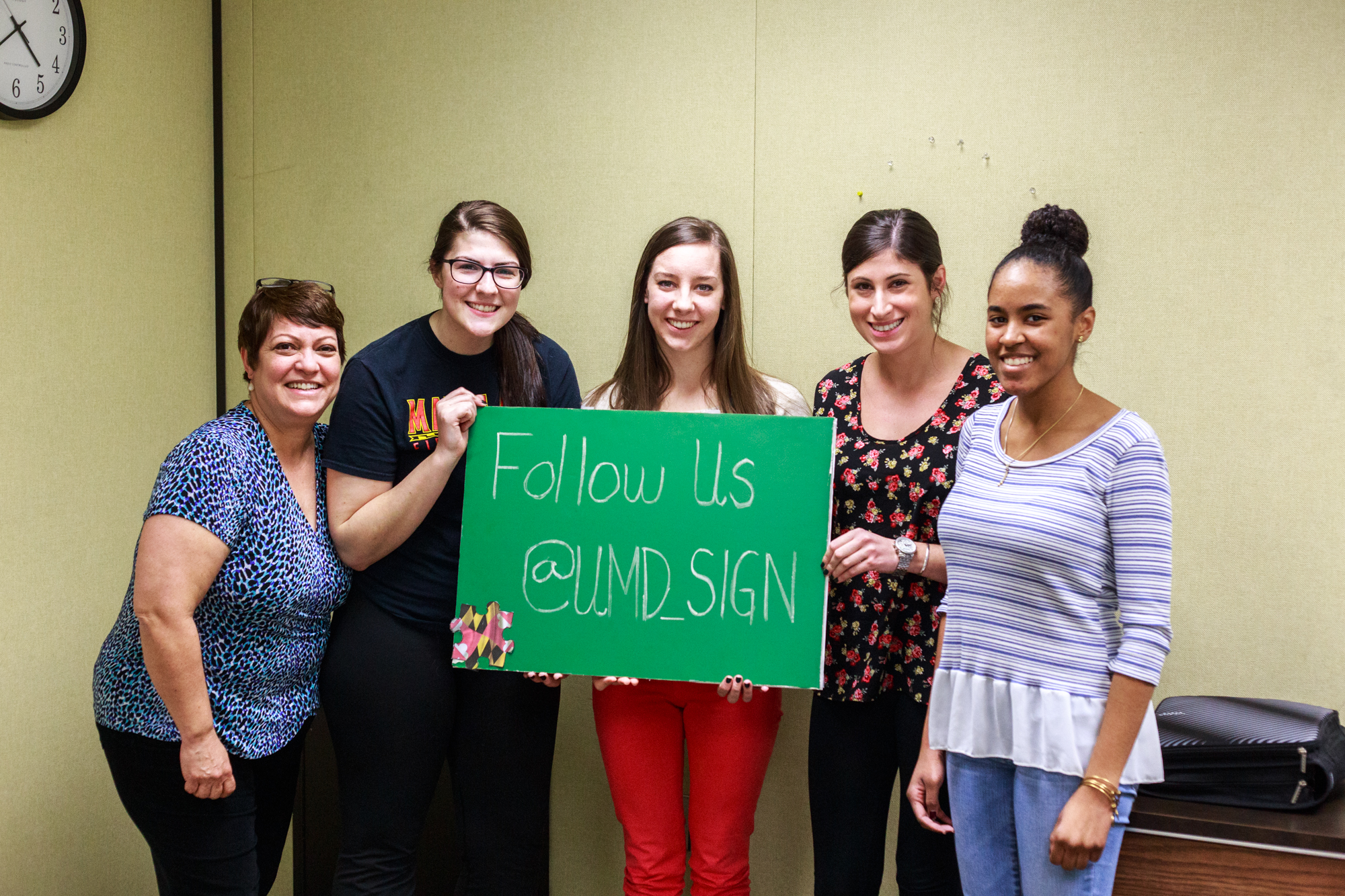Caroline Kettl has always enjoyed working with young people, but since the University of Maryland launched a new network for students with autism, she has discovered a passion for working with those diagnosed with the disorder.
The University of Maryland Autism Research Consortium and the Hearing and Speech Clinic started the UMD Social Interaction Group Network this semester to help University of Maryland students with autism.
“It’s something that I’ve always been interested in and always loved working particularly with kids, but through that, I found that I really liked working with children with autism, who just didn’t necessarily have that natural knowledge of communication,” said Kettl, a graduate student studying speech and language pathology.
Kettl is also a social coach within the program and said with the growing awareness of the autism spectrum, this program has attracted more clients.
The program aims to teach students with autism certain social skills, such as the manifestations of and reasons behind certain behaviors.
“It gives the students on the spectrum that really don’t have a lot of social interaction here on campus a chance to be able to understand the hows and the whys of talking with others,” said Kathy Dow-Burger, the consortium’s assistant clinical professor and associate director. “If they don’t understand the hows and the whys, then the whats don’t matter.”
These “whys” include: social behaviors such as why individuals look at someone when they’re talking, listening before entering a conversation, staying on topic and more. The network also addresses “how” you are able to do those things, Dow-Burger said.
Part one of the program includes graduate students holding one-on-one sessions with students with autism, while the second part of the program includes interactive outside-the-session activities such as a “game night,” Dow-Burger said. The group held one of these outside therapy sessions on March 9.
While data from this pilot program will be collected on these participants, it will not be used for public research purposes. Instead, it will be gathered to help future participants.
The consortium, which was founded a couple of years ago, began taking action within the community by asking people what they needed for their children with autism, said Nan Ratner, the consortium’s director. This led to a number of parents expressing concerns regarding older children with autism.
“We knew that with the campus size, there was likely a population of students here who might be interested in getting social coaching,” Ratner said. “And we did find out from [Disability Support Services] that there are people self-identified.”
While Ratner and other members of the consortium were not allowed to solicit or receive names of these students, they wanted to confirm their hypothesis: a number of students on the campus have autism. From there, the consortium checked to see if there was interest in a network to assist students with autism at this university and recruited through Facebook.
“We’re looking to not only help this group but to check the feasibility of having a larger, more ambitious support system on campus,” Ratner said. “If we were very successful, I would like to think that we could also wind up helping students in the local community who are not necessarily students here.”



